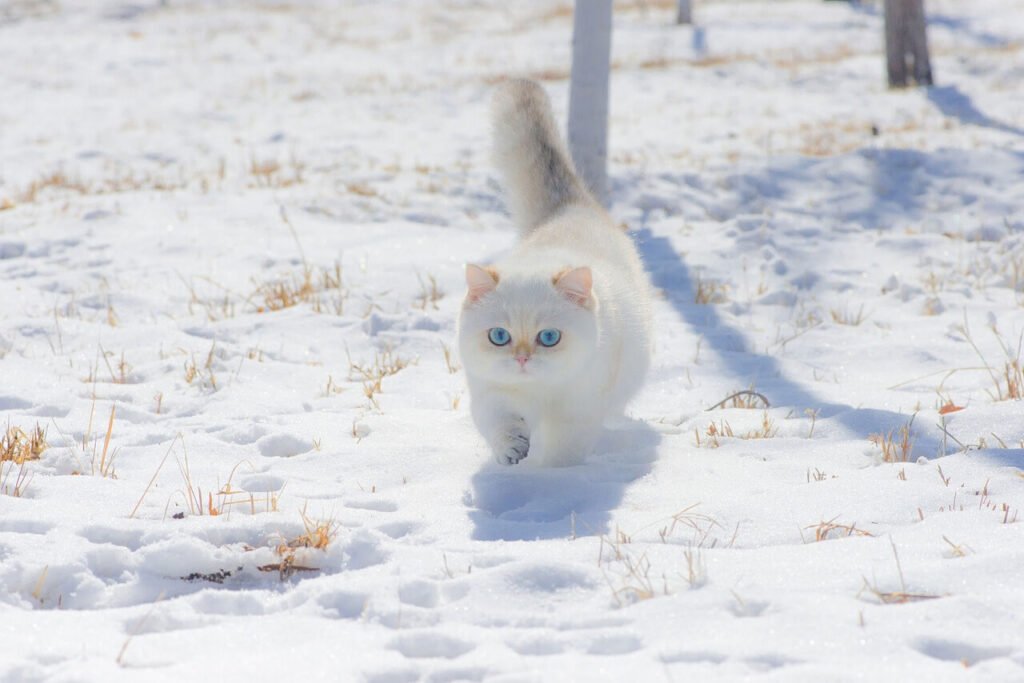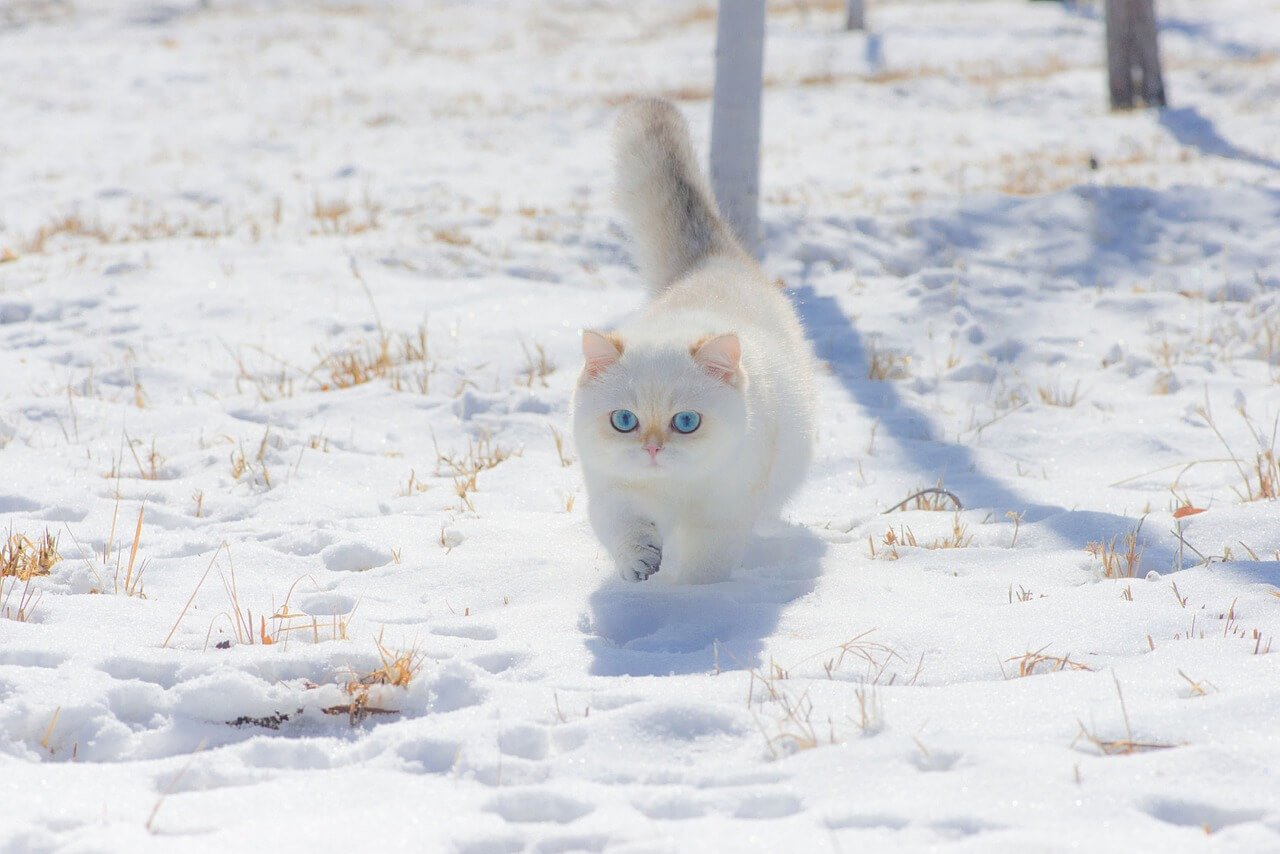Why Is My Cat Coughing?
Cats are known for their quiet and graceful demeanor, so when they start coughing, it can be alarming. While occasional coughing might not always indicate a serious issue, persistent or unusual coughing should never be ignored. Cats may cough for a variety of reasons, ranging from harmless hairballs to more concerning conditions like respiratory infections or heart problems. Understanding the potential causes, recognizing warning signs, and knowing when to seek veterinary care are crucial steps in ensuring your cat’s health and well-being. In this blog post, we’ll explore everything you need to know about why your cat might be coughing and how to address it effectively.
Common Causes of Cat Coughing
Cats cough for many reasons, and identifying the underlying cause is key to addressing the issue. Here are some of the most common triggers for feline coughing.
Hairballs:
Cats groom themselves frequently, and ingested fur can form hairballs that irritate the throat, causing them to cough as they try to expel the mass.Allergies:
Environmental allergens like dust, pollen, or cleaning products can irritate a cat’s airways, leading to coughing fits.Respiratory Infections:
Viral or bacterial infections, such as feline herpesvirus or bordetella, can inflame the respiratory tract and result in persistent coughing.Asthma:
Feline asthma is a chronic condition that causes inflammation and narrowing of the airways, often accompanied by wheezing or coughing.Foreign Objects:
Small items like grass blades, strings, or food particles can get lodged in a cat’s throat, triggering coughing as they attempt to dislodge the object.
By understanding these common causes, you can better assess whether your cat’s coughing requires immediate attention or simple home care.

Signs That Your Cat’s Coughing Requires Veterinary Attention
While some coughing episodes are harmless, others may signal a serious health issue. Look out for these warning signs that indicate your cat needs professional care.
Persistent Coughing:
If your cat coughs repeatedly over several days, it could signify an underlying condition that needs diagnosis and treatment.Difficulty Breathing:
Labored breathing, rapid panting, or open-mouthed breathing alongside coughing is a red flag requiring urgent veterinary attention.Loss of Appetite or Energy:
A decline in appetite, lethargy, or uncharacteristic behavior accompanying coughing may point to a systemic illness.Coughing Up Blood:
Hemoptysis (coughing up blood) is a severe symptom that demands immediate medical evaluation.Blue Gums or Tongue:
Bluish discoloration of the gums or tongue indicates oxygen deprivation, which can occur due to respiratory distress.
Recognizing these symptoms early ensures timely intervention, potentially saving your cat from further complications.
Check this guide 👉Cat Coughing with Tongue Out: Best 7 Health Tips!
Check this guide 👉Cat Coughing Without Hairball: Best 7 Expert Health Tips!
Check this guide 👉Why Is My Cat Coughing? Best 7 Expert Tips!
When to Worry About Coughing | When It Might Be Normal |
|---|---|
Persistent coughing over several days | Occasional hairball-related coughing |
Wheezing or labored breathing | Mild seasonal allergy reactions |
Coughing accompanied by lethargy | Temporary irritation from dust or smoke |
Blood in saliva or vomit | Dry cough after drinking water |
Blue gums or difficulty swallowing | Playful gagging during energetic play |
How to Help Your Cat at Home
If your cat’s coughing seems mild and not linked to a serious condition, there are steps you can take at home to alleviate their discomfort.
Brush Their Fur Regularly:
Frequent brushing reduces the amount of loose fur your cat swallows, minimizing the risk of hairballs.Use a Humidifier:
Adding moisture to the air can soothe irritated airways, especially if your cat suffers from allergies or dryness.Remove Potential Irritants:
Keep your home free of strong-smelling cleaners, cigarette smoke, or other substances that could irritate your cat’s lungs.Encourage Hydration:
Ensure your cat has access to fresh water to help thin mucus and reduce throat irritation.Monitor Their Behavior:
Keep track of when and how often your cat coughs to provide valuable information to your vet if needed.
These measures can help manage mild coughing episodes and improve your cat’s overall comfort.
Preventing Future Coughing Episodes
Taking proactive steps can minimize the likelihood of your cat experiencing frequent or severe coughing spells. Prevention is often easier than treating ongoing issues.
Schedule Regular Vet Checkups:
Routine examinations allow your vet to catch potential health problems before they escalate into serious conditions.Vaccinate Against Respiratory Illnesses:
Keeping your cat up-to-date on vaccinations protects them from contagious respiratory diseases.Maintain a Clean Environment:
Vacuum regularly and clean bedding to reduce allergens and irritants in your home.Provide a Balanced Diet:
Proper nutrition supports your cat’s immune system, helping them fight off infections and illnesses.Avoid Stressful Situations:
Stress weakens the immune system, making cats more susceptible to respiratory issues. Create a calm and enriching environment for them.
By focusing on prevention, you can help your cat stay healthy and reduce the chances of future coughing episodes.
When to Differentiate Between Coughing and Gagging
Sometimes it’s hard to tell whether your cat is actually coughing or simply gagging, as both behaviors can appear similar. Understanding the difference helps determine the appropriate course of action.
Coughing Sounds Like Honking or Wheezing:
True coughing typically involves forceful expulsion of air from the lungs and may sound like honking or wheezing.Gagging Often Accompanies Retching:
Gagging usually involves retching motions and is often linked to hairballs or attempts to vomit.Observe Body Language:
Cats tend to crouch low and stretch their necks during coughing, whereas gagging often involves hunching over or licking their lips.Check for Foreign Objects:
If your cat is gagging and pawing at their mouth, they may have something stuck in their throat.Consult a Vet for Clarity:
When in doubt, consult your veterinarian to confirm whether the behavior is coughing, gagging, or another issue entirely.
Distinguishing between these behaviors ensures accurate diagnosis and treatment.
How to Comfort a Coughing Cat
Seeing your cat struggle with coughing can be distressing, but offering comfort can ease their anxiety and yours. These tips help soothe your feline companion during difficult moments.
Stay Calm Around Your Cat:
Cats pick up on your emotions—if you’re calm, they’re more likely to feel reassured.Create a Quiet Space:
Move your cat to a peaceful area away from noise and distractions to help them relax.Offer Gentle Petting:
Light strokes along their back or under their chin can provide comfort without aggravating their condition.Keep Them Hydrated:
Place a bowl of fresh water nearby to encourage hydration, which can soothe irritated throats.Limit Physical Activity:
Discourage strenuous play or exercise until their coughing subsides to prevent further strain on their respiratory system.
Comforting your cat fosters trust and helps them recover more quickly.
Natural Remedies to Support Respiratory Health
In addition to veterinary treatments, some natural remedies can complement efforts to support your cat’s respiratory health. Always consult your vet before trying new supplements or therapies.
Herbal Teas for Steam Therapy:
Boiling chamomile or eucalyptus tea and allowing your cat to inhale the steam can loosen mucus and relieve congestion.Omega-3 Fatty Acids:
Found in fish oil, omega-3s can reduce inflammation and support overall respiratory function.Probiotics for Immune Support:
Probiotics promote gut health, which plays a role in strengthening the immune system against infections.Honey (in Moderation):
A small drop of honey mixed with water can soothe irritated throats, though it should only be given sparingly.Essential Oils for Diffusion (Pet-Safe Only):
Certain oils like lavender or frankincense can promote relaxation and respiratory wellness when used in pet-safe diffusers.
Natural remedies, when used responsibly, can enhance your cat’s recovery and overall well-being.
Frequently Asked Questions About Cat Coughing
What does cat coughing sound like?
Cat coughing often resembles a dry, hacking sound, similar to a hairball attempt. It may also include wheezing or gagging.
Can hairballs cause coughing in cats?
Yes, hairballs can irritate the throat and stomach, leading to coughing as the cat tries to expel them.
Is cat coughing normal?
Occasional coughing is normal, but persistent or frequent episodes are not and should be evaluated by a vet.
How can I soothe my cat’s cough at home?
Ensure a clean environment, provide fresh water, and use a humidifier to ease respiratory discomfort.
Can stress cause coughing in cats?
Stress can exacerbate existing respiratory issues, indirectly contributing to coughing episodes.
Understanding and Addressing Cat Coughing
Coughing in cats can stem from a wide range of causes, from benign hairballs to life-threatening conditions like asthma or heart disease. By staying vigilant, recognizing warning signs, and seeking professional advice when needed, you can ensure your feline friend remains happy and healthy. Whether through preventive care, environmental adjustments, or timely veterinary visits, taking action demonstrates your commitment to their well-being. Remember, even seemingly minor symptoms deserve attention—after all, your cat relies on you to advocate for their health and happiness.
Keeping Your Dog Safe This Summer: Best 7 Expert Tips! – Learn how to protect your pup from heatstroke, dehydration, and more this summer. Stay safe!
When Was Cat Food Invented? Best 7 Expert Tips! – Discover the history, key milestones, and evolution of cat food from scraps to scientifically balanced diets.
When Was Dog Food Invented? Best 7 Expert Tips! – Discover the origins, evolution, and milestones of dog food, and how it transformed pet nutrition over time.
Kintamani Dutch Shepherd Mix: Best 7 Expert Tips! – Discover the perfect blend of loyalty, agility, and charm with this unique hybrid. Learn expert care tips now!





